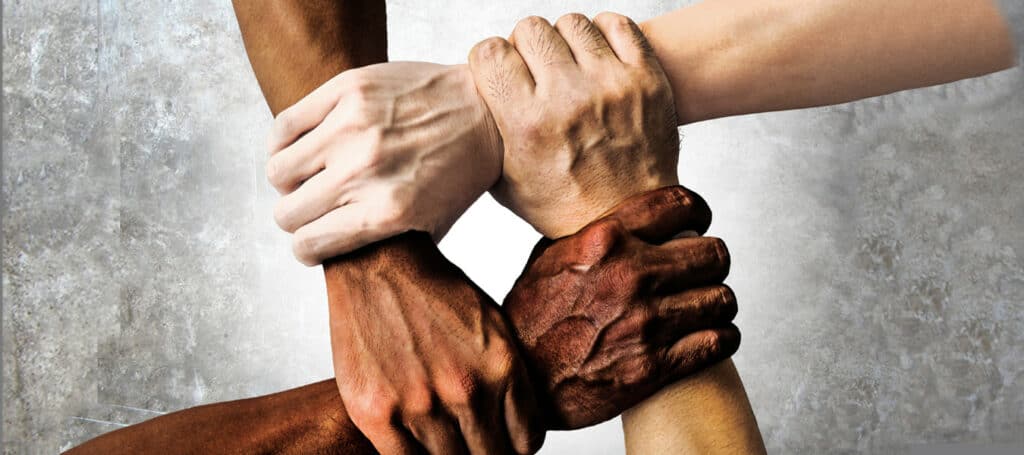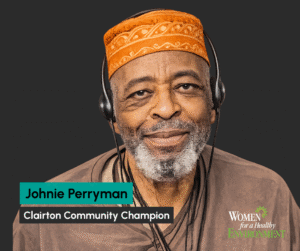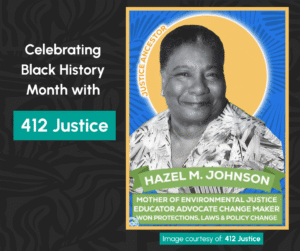A child’s zip code must never determine their health outcome. This core belief – that no matter where children live and learn, they should have the ability to thrive without the burden of environmental harms – is the cornerstone of our work at Women for a Healthy Environment (WHE). However, we also know that social determinants of health, including racism, are driving health inequities across this country, and impacting the lives of children and their families every single day.
Ten years ago, a diverse group of individuals came together to form WHE. They adopted the following organizational values:
- Commitment: Maintaining the responsibility and focus of creating a healthier environment for all.
- Accountability: Utilizing the organization’s resources and properly stewarding its finances in a manner that is transparent, honest, and responsible and maintains the public trust.
- Inclusiveness: Promoting collaboration, diversity and social justice within our organization and across all communities in which we work.
- Integrity: Advocating sound, evidence-based science; following the guidance of the precautionary principle; and safeguarding the handling of data, research and information.
- Vigilance: Fostering a culture that promotes a sustainable future for all.
While true to the WHE mission and vision, these values are not enough. Many of us at WHE can’t possibly begin to understand the injustices that our friends, colleagues and program recipients who identify as Black/Indigenous People of Color face each and every day. But we are here today to promise to do better. We strongly condemn and grieve the recent violent and publicized deaths of black men and women; no member of the black community should ever feel that they are risking their life when going for a jog in their neighborhood (Ahmaud Arbery), bird-watching (Christian Cooper), shopping at a convenience store (George Floyd), or sleeping in their own home (Breonna Taylor).
Attending a conference or a racial justice summit simply is not enough. Every day, we must invest time and resources to address the public health crisis that racism is. In 1988, the American Public Health Association, for the first time in its history explicitly acknowledged the ways racism negatively impacts health for people of color, and in particularly for black
Americans. “As a growing body of research shows, racism is a social determinant of health that perpetuates and exacerbates the very trends our field works to reverse. Therefore, public health, at its core, is antiracist work. Health disparities, discrimination, and residential segregation, which are topics familiar to public health researchers, are by-products of racism.”1
And more recently, a 2019 University of Pittsburgh report found that a black Pittsburgher would be healthier if they essentially lived anywhere but the Pittsburgh metro region. In summary they found that in Allegheny County, black mothers and their babies die at alarming high rates compared to white mothers.2 Black students suffer from high rates of police referrals from their educational institutions. Black families are more likely to live in poverty, in houses and rental apartments that are not well-maintained and often contain a number of environmental hazards.3
To that end, WHE is committed to:
- immersing ourselves, board and staff, in anti-racism training and ensuring broader representation on WHE board and committees
- centering leadership and elevating the voices of those who have lived experiences to share (and for us to learn from)
- advocating for voter reform and a living wage
- calling upon our elected and health officials to not just label racism as a public health crisis, but put actions, strategies and funding into place to address it
- highlighting the work of Black/Indigenous People of Color educators and school leaders, supporting school districts who serve communities of color
- engaging Black/Indigenous People of Color vendors and businesses in our programmatic work
- supporting communities of color by creating meaningful relationships within them that are sustained beyond our grants’ life-cycles, supporting them through our programmatic initiatives, and advancing their organizational goals and community needs
Enough is enough. We must use our privilege in a way that stops racism in its tracks. We know choosing silence is choosing to be complicit in maintaining the systems that produce these violent and fatal inequities. We need policy reform and investment to make our communities healthier. We need open, honest and uncomfortable dialogue. And we need to demonstrate through intentional strategies that we must, and can, do better.
In peace,
The WHE Staff and Board
Source Info & Additional Resources
Black Lives Matter: A Commentary on Racism and Public Health
Pittsburgh’s Inequality Across Gender and Race 2019
103 Things White People Can Do for Racial Justice
List to Support Anti-Racism Action
George Floyd. Ahmaud Arbery. Breonna Taylor. What do we tell our children?
WHE Reads
Visit WHE Reads for a detailed list of Anti-Racism Resources for parents.





